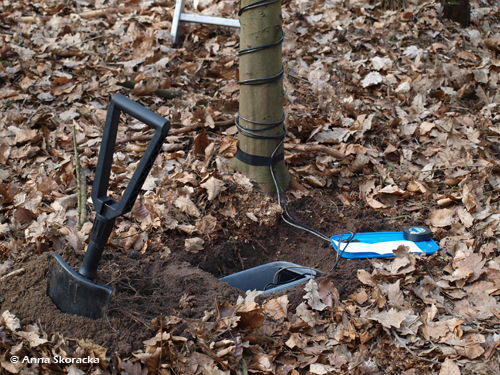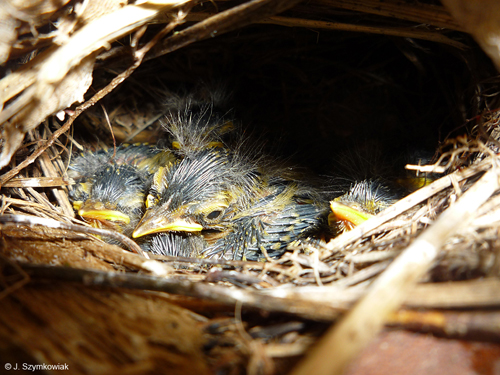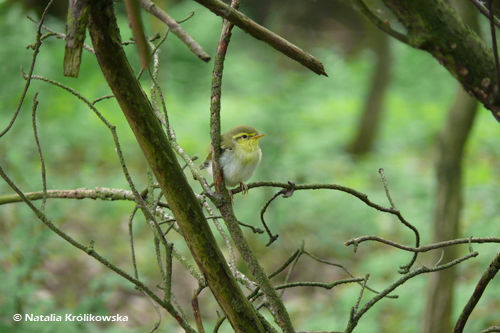Behavioral mechanisms of habitat selection processes in small songbirds: the wood warbler (Phylloscopus sibilatrix) as a case study
Funding: National Science Centre, Poland (NCN 2012/07/N/NZ8/00129)
PI: Jakub Szymkowiak
Co-investigators: Lechosław Kuczyński, Robert L. Thomson
Description: In this project we focus on three questions regarding information use for breeding-site selection in wood warblers: (1) Do wood warblers selectively use social cues from already settled conspecifics (conspecific attraction), in relation to the quality of observed individuals, to guide own breeding-site choices? (2) Do wood warblers use the presence of settled heterospecifics as a cue for breeding habitat selection? (3) Is habitat selection of wood warblers an anti-predator behavior and, in particular, is the phenomenon of wood warblers refusing to settle during rodent outbreak years (perhaps to minimize nest predation risk) a general rule that occurs at a broad geographical scale? We also study whether habitat selection of wood warblers involves interactions with Eurasian jays (Garrulus glandarius), important predators of wood warbler nests, and whether these interactions (if any) are mediated by fluctuating rodent numbers. In addition, using agent-based models, we explore potential predation-related costs and benefits of social attraction as a strategy for breeding-site selection in a multi-predator environment.
More info: jakubszymkowiak.wordpress.com
Selected publications:
Szymkowiak J., Thomson R.L., Kuczyński L. 2017. Interspecific social information use in habitat selection decisions among migrant songbirds. Behavioral Ecology, 28: 767-775, DOI: 10.1093/beheco/arx029
Szymkowiak J., Thomson R.L., Kuczyński L. 2016. Wood warblers copy settlement decisions of poor quality conspecifics: support for the tradeoff between the benefit of social information use and competition avoidance. Oikos, 125: 1561-1569, DOI: 10.1111/oik.03052
Szymkowiak J., Kuczyński L. 2015. Avoiding predators in a fluctuating environment: responses of the wood warbler to pulsed resources. Behavioral Ecology, 26: 601-608, DOI: 10.1093/beheco/aru237
Szymkowiak J., Kuczyński L. 2015. Predation-related costs and benefits of conspecific attraction in songbirds – an agent-based approach. PLoS ONE, 10: e0119132, DOI: 10.1371/journal.pone.0119132






